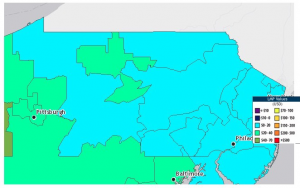Free power plans try to persuade clients that deducting a huge lump of your important time will chop down your bill. It’s an extraordinarily enticing thought. Nonetheless, the point of convergence of these free power plans is that the energy charge is higher than different plans fundamentally or more. You end up paying LOTS something else for the power that you use.
What is your take of Reliant Energy Pick Your Free Plans?
Reliant Energy Rates -Free 7 Days takes out the 7 most significant use days during a multi-day (or more) month-to-month charging period.
The ends of the week are liberated from 8:00 PM Friday to early afternoon Monday.
Consistently from 8:00 PM to 6:00 AM, there is no charge for Free Nights.

The energy charge for seven days is 17 pennies for each kilowatt-hour*.
Each kWh of energy during Free Weekends costs 17 pennies.
There is a 20-penny charge for every kilowatt-hour during Free Nights.
Texas Free Electricity Providers :
TXU Energy has since a long time in the past offered an assortment of free power-type plans. Its most notable is Free Nights and Solar Days, a year plan with a rate dependent upon harmless to the ecosystem power credits. The pondering is that clients are charged for the sun-based energy they use during the day and a brief time frame later credited for the extent of wind energy they use around evening time. In the meantime, the TXU Season Pass plan is a later responsibility that licenses clients to take half off the energy charge all through the colder season and pre-mid year months. The thought here is to give clients a markdown when their use will by and large be higher.
Are TXU Solar Days and Free Nights Worth It?
TXU’s Free Nights and Solar Days are without a doubt their most well known free power plan. The rate is mentioned by the cost of sun-based harmless to the ecosystem power credits during the day and the cost of twist harmless to the ecosystem power credits around evening time. Sun-based days last from 5 am to 7:59 pm. Evenings start at 8 pm and end at 4:59 am. Clients are charged for the energy they use during the day and consequently credited around evening time. TXU argues that clients who shift a large portion of their energy utilization to evening stand to set aside money with the arrangement. It sounds keen, yet when you attack the subtleties it’s inconvenient utilizing any means.
One downside is that the approach joins the TXU standard base charge of $9.95. As different power clients know, base charges successfully add to the cost per kWh.
Utilization of 500kWh: $9.95/500kWh = $1.99 each kilowatt-hour
The expense of 1000 kWh is $9.95/1000 kWh = 0.00995 (or .9957 pennies for each kWh)
The cost per kWh would be $.4975 for 2000 kWh utilized, or $9.95/2000 kWh = $0.004975 (or .4975 pennies for each kWh).
The most troublesome issue, amazingly, is that the TXU energy charge is around 17 pennies for each kWh. That is basically on different events higher than the stream’s most reasonable fixed-rate power plans without levels or bill credits.
At this point, while some energy-concentrated things can be time-moved to the evening (clothing, water warming, dishwashing), others will not be. For instance, the high rate can be horrifyingly costly all through the colder season and summer, particularly while daytime cooling requests make up the heaviness of your month-to-month Texas electric bill. Considering everything, no reasonable individual needs to pay 17 pennies for each kWh for 15 hours when it’s 99°F outside.
